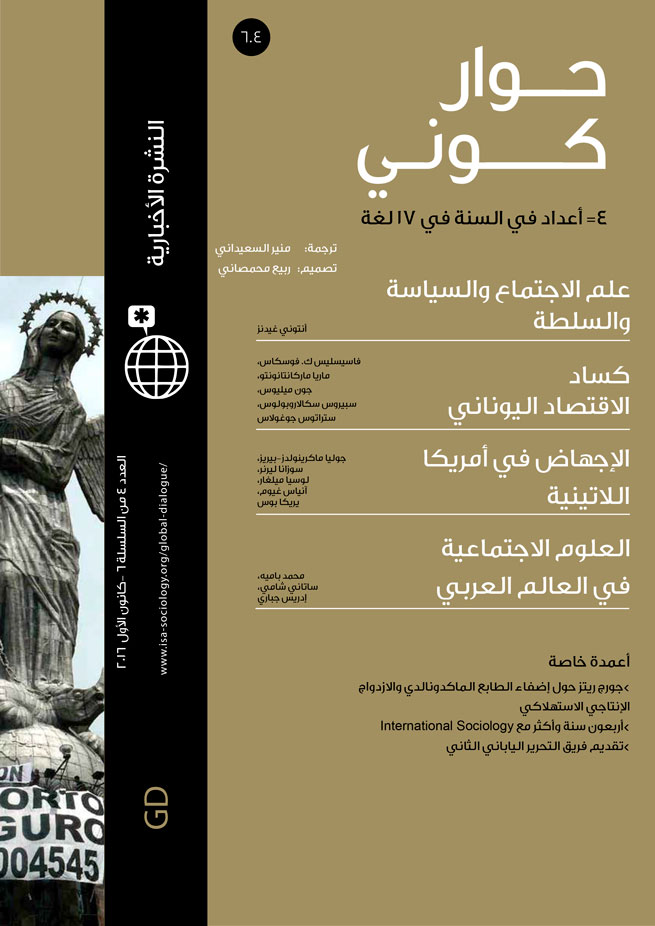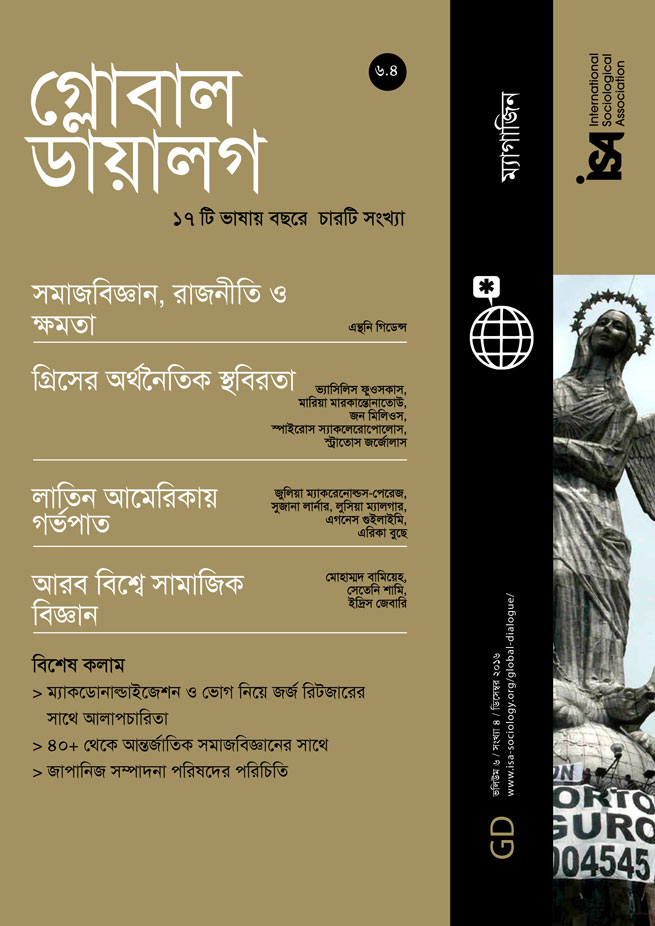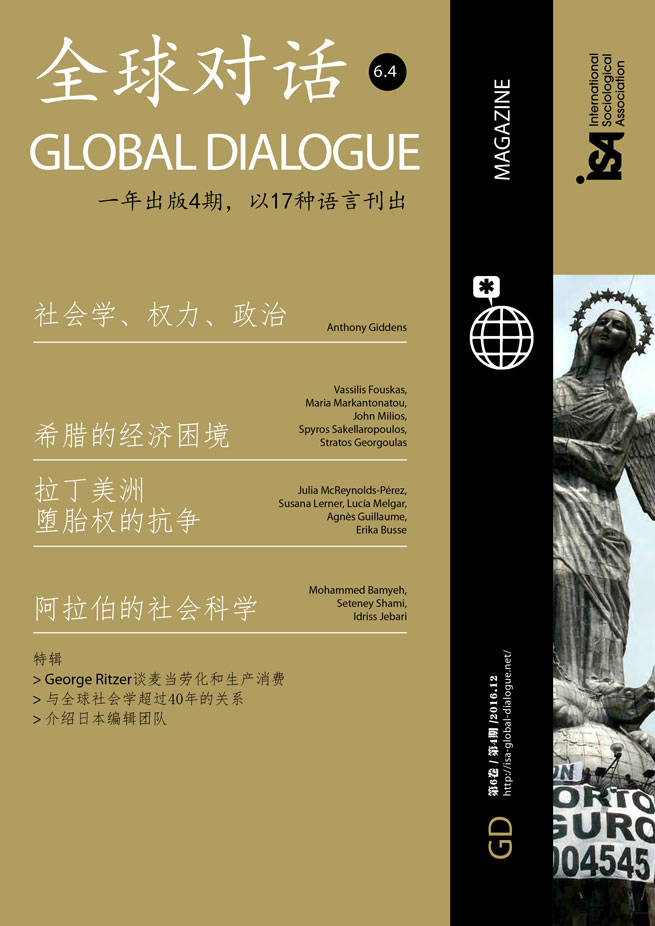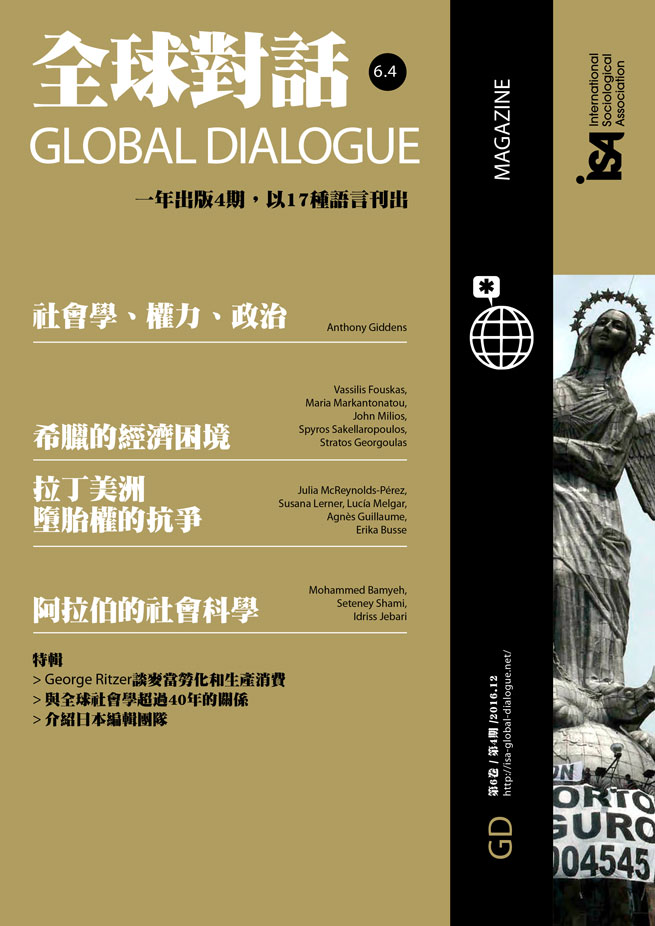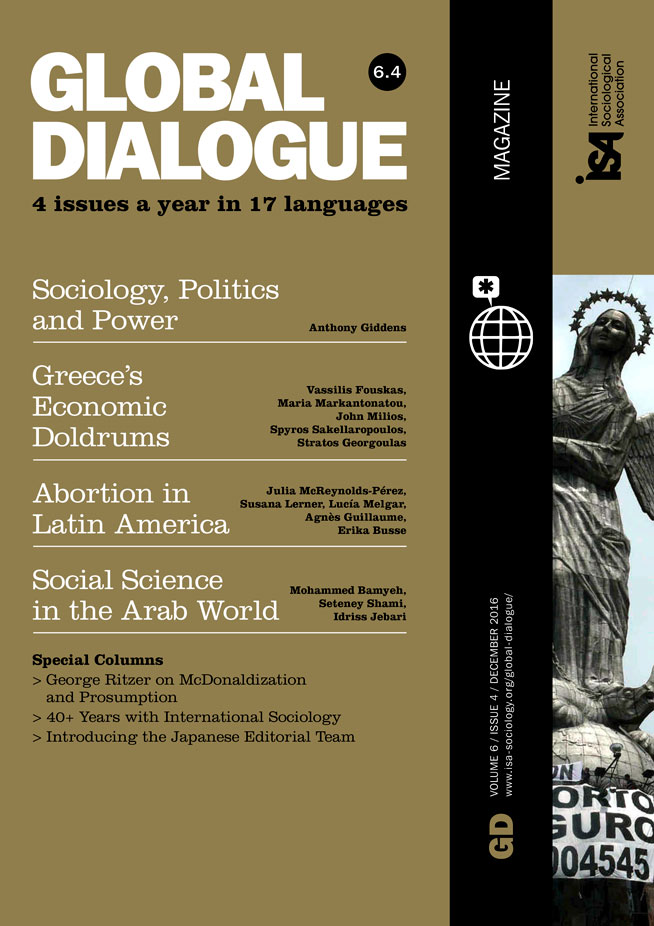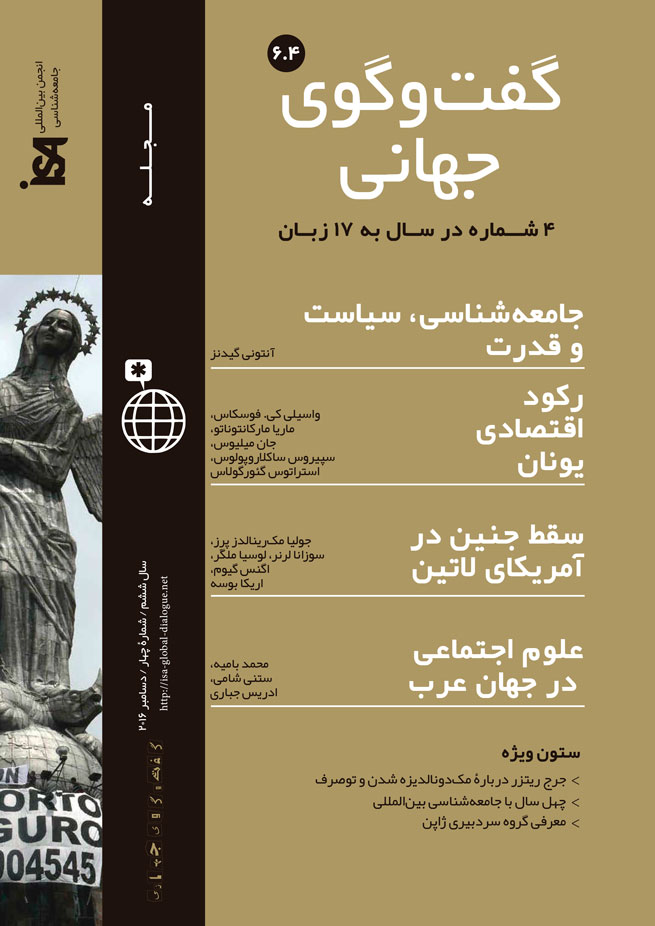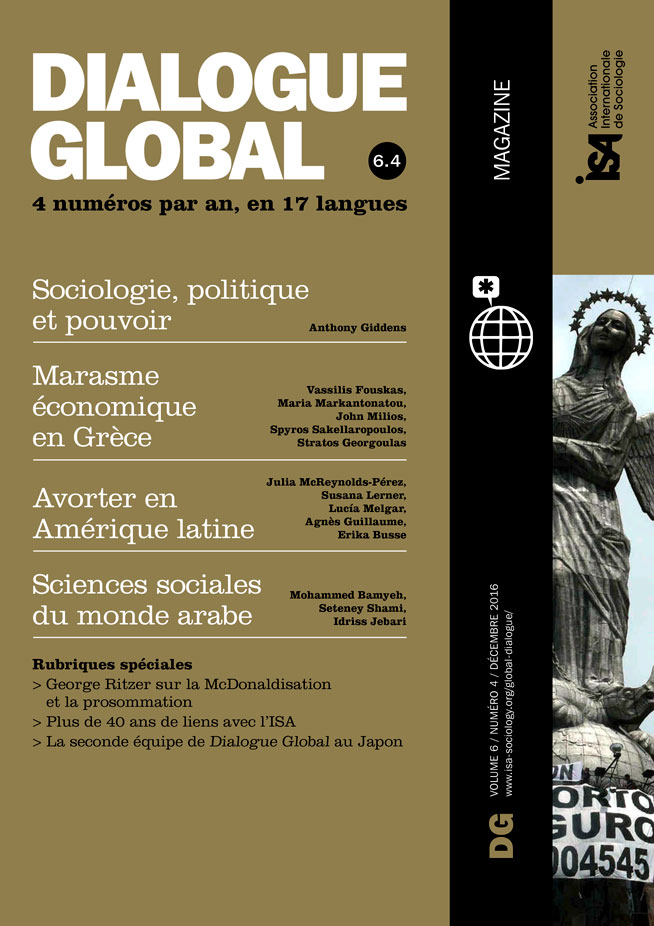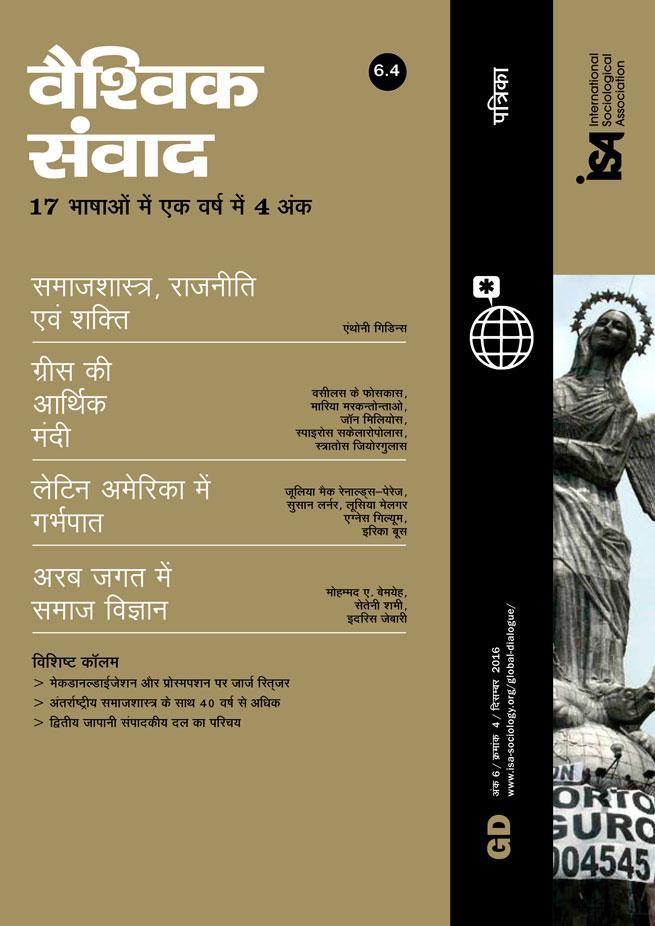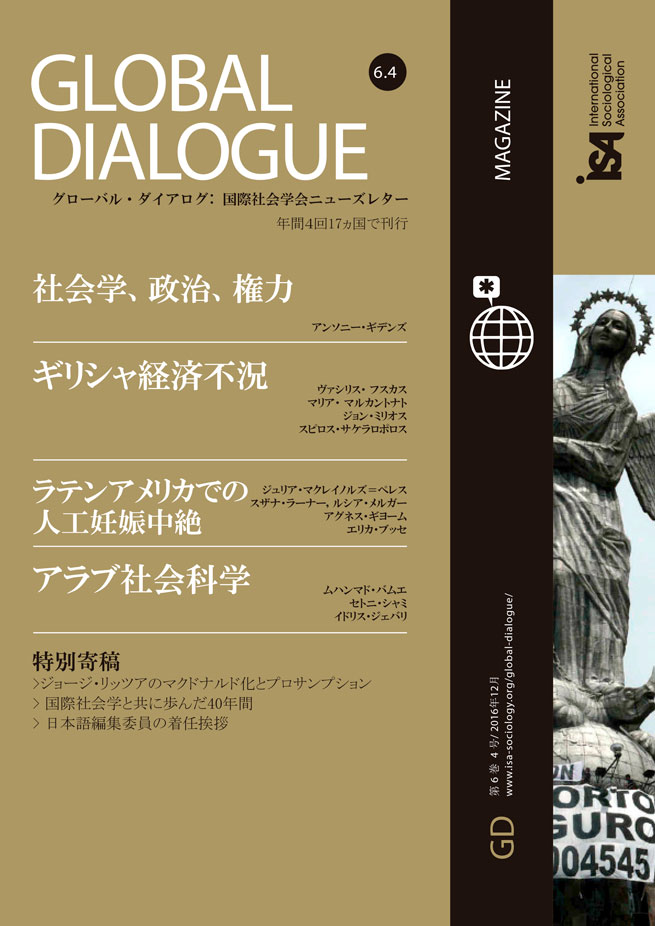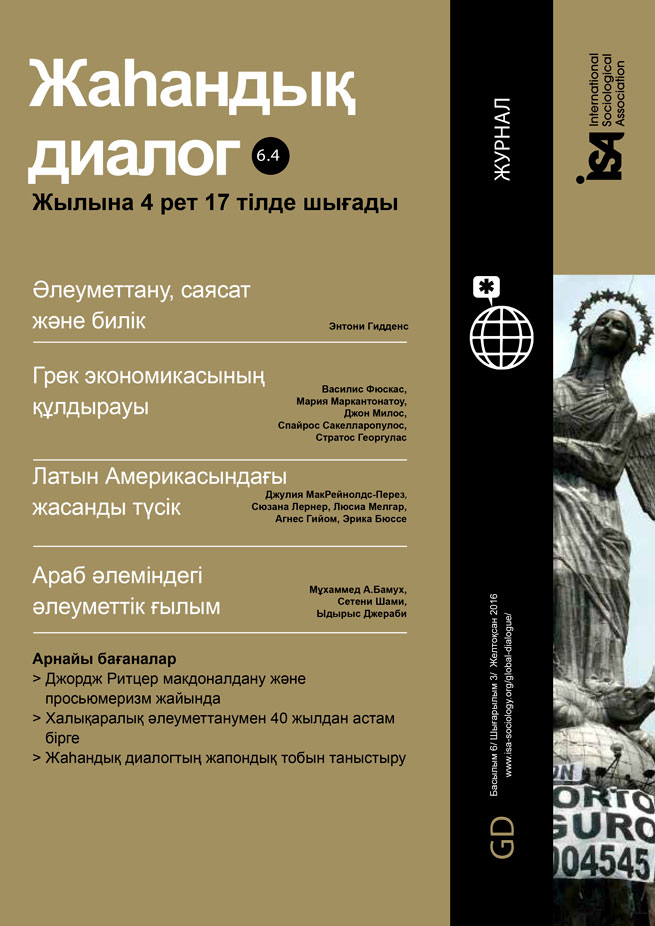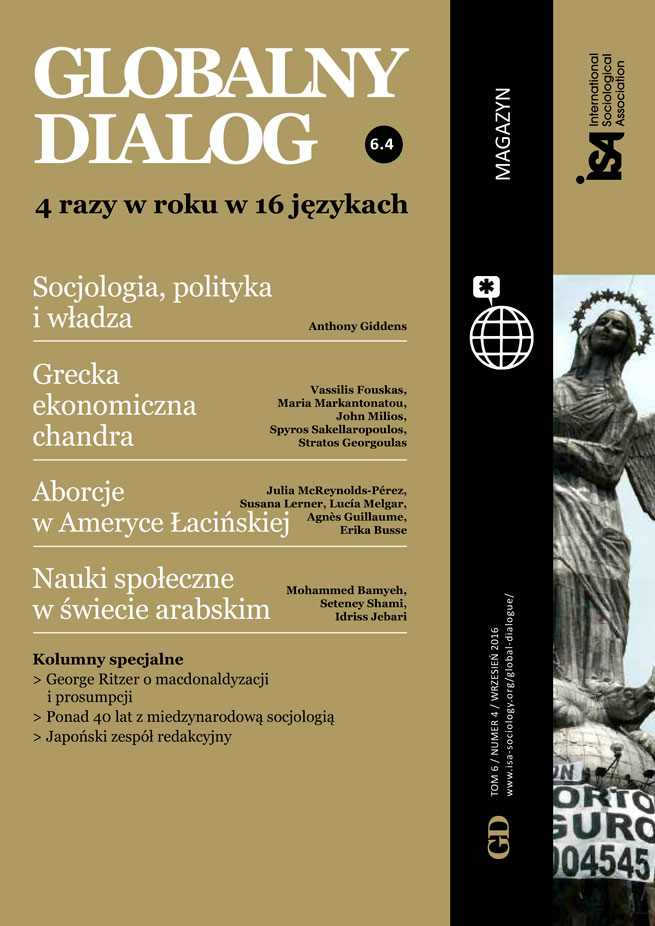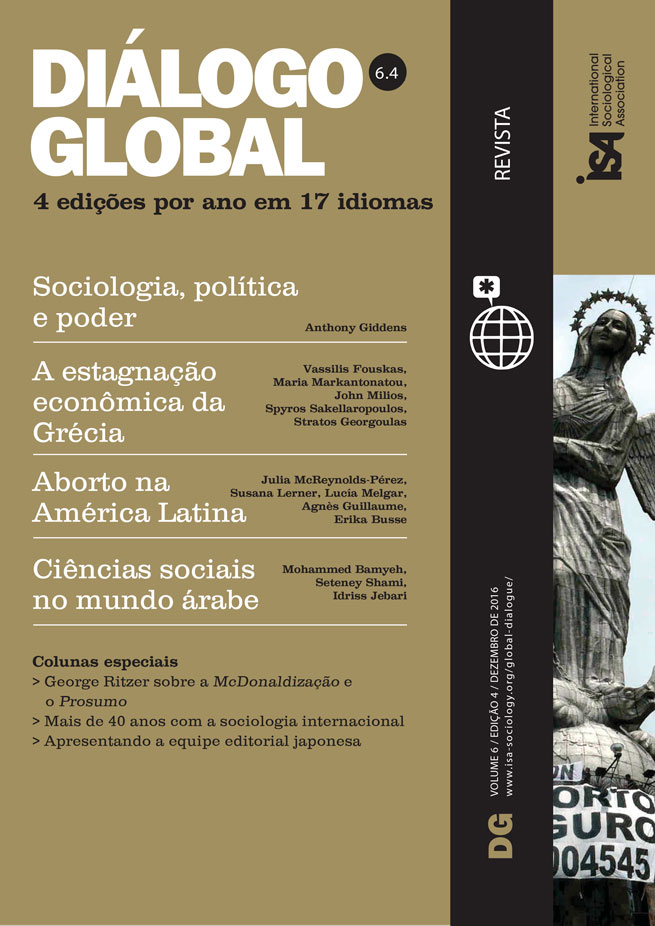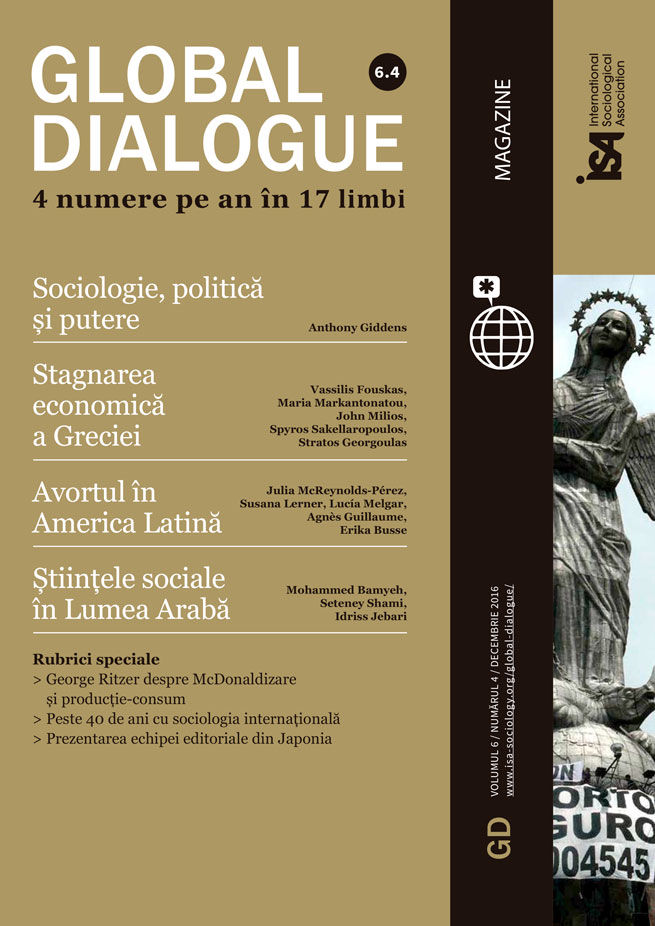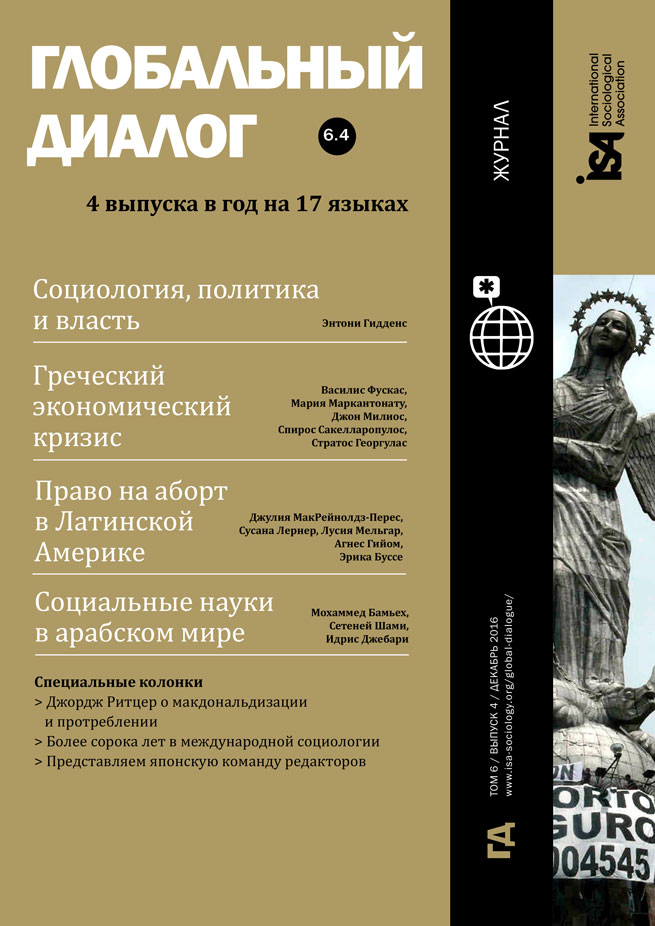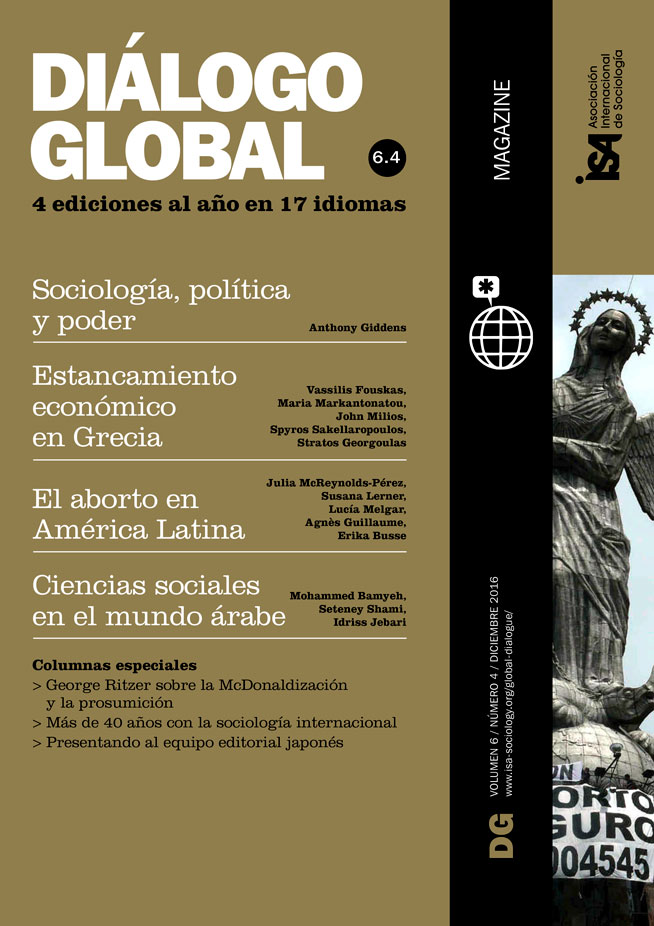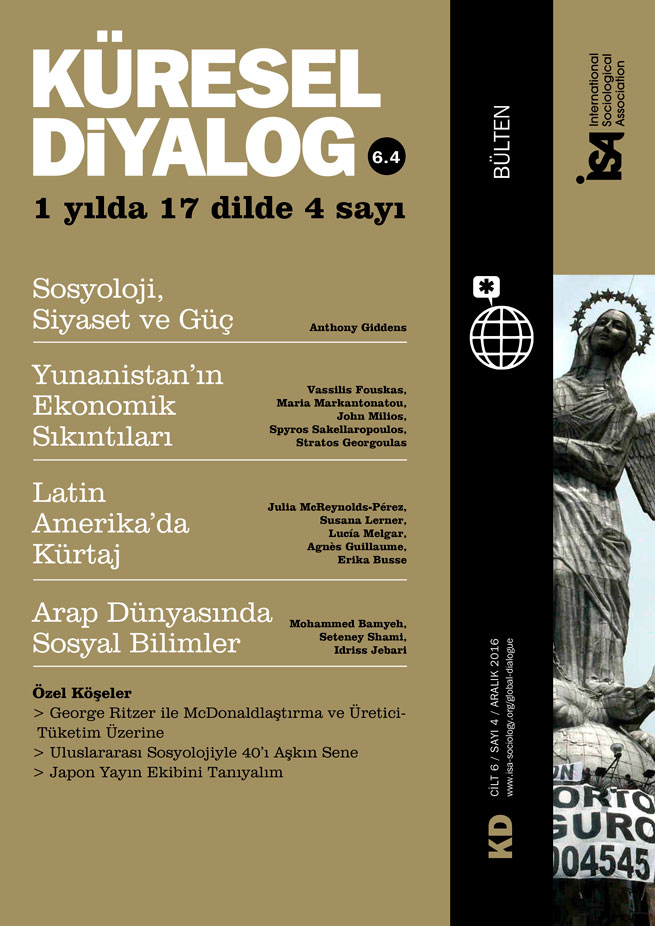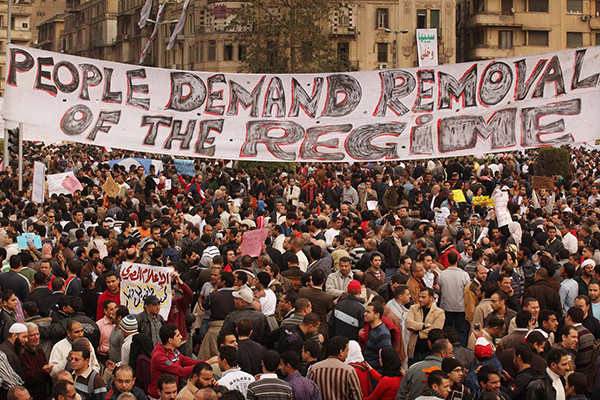Read more about Social Science in the Arab World
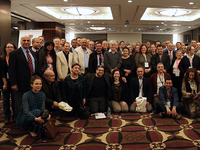
New Social Science Infrastructures in the Arab Region
by Seteney Shami
Introduction: The Social Sciences in the Arab World
by Mohammed A. Bamyeh
December 02, 2016
In the first report on the state of the social sciences in the Arab world, Sociology Professor Mohammed Bamyeh tackles the conundrum of Arab social sciences today: a seemingly-historically weak field of knowledge that exists alongside richly tumultuous and complex social realities. Five years on from the Arab Spring, there is enough critical distance to ask how the field of knowledge has digested these transformations. How does the report depict the challenges faced by Arab social sciences? What lessons regarding public engagement should young Arab social scientists take away from it?
The Challenges of Arab Social Sciences
The underperforming state of Arab knowledge production is well documented by scholars, practioners, and students. In this report, Bamyeh steers clear of the usual generalizations such as the lack of global integration or political instability, focusing instead on the institutional structures that have shaped the field. Rather than choosing isolation, he argues, Arab social scientists suffer from “poor networking capacity” and “the erosion of connections [with] their formative heritage.” In general, the aims of Arab social scientists are not necessarily to seek visibility on the global stage, but to explain their objects of research and influence policies; the most pressing questions today revolve around the discipline’s estrangement from society and market forces that question its value and uses.
This institutional focus locates the object of the social sciences in the Arab region in terms of the tension between universalism and specificity. Bamyeh seems to lean toward the former, while acknowledging that these disciplines have grown up through interactions with Western social sciences, following a specific tradition that he retraces through founding texts and topical orientations in the past decades. Bamyeh sidesteps the issue of the “specificity” of Arab social sciences and its impact on research methods, especially because they continue to pose theoretical conundrums for Arab social scientists (for example, the continuous tension between supporters of Gellner and his framework of tribes, against those who prefer Bourdieu’s class-centered sociology). Yet, these choices continue to shape the region’s social science research today: Arab social scientists gain visibility thanks to foreign publications, which in turn shapes their research orientation, be they thematic or methodological.
Bamyeh’s own approach in this report raises the methodological issue of the “unit of analysis”: does it makes sense to study social phenomena in abstraction or for the Arab region as a whole, and then confront one’s conclusions with national and local contexts in order to produce complete and generalizable conclusions? Thus, he invokes the “Islamization” of social sciences in the 1980s across the region, then turns to a detailed discussion of Saudi Arabia, where these logics are particularly visible, before going on to comment on the prevalence of family and criminology research – rather than research on social conflict or expatriate labor, despite their importance in the country. Similarly, Bamyeh discusses Mokhtar El-Harrach’s background study on the content of Arab journals, which includes a cross-national comparison to understand how Arab cultural journals function, and finds that theoretical studies make up as much as 68% of the journals’ content. Yet in a passing comment, he notes that these journals tend to deal significantly more with the immediate region rather than adopting a broad Arab focus, without providing a sufficient explanation of what shapes these different outcomes. Similarly, the term “research density” (the number of research centers divided by a country’s population) is used to classify the Arab world, but “the general atmosphere nurturing them” is offered as an explanatory factor of “interest for social science” in different contexts. The author acknowledges the broad picture is shaped by mechanisms, incentives, and pressures on the academic field, but the subtle and specific elements are not discussed in detail.
By the author’s own admission, the report’s “survey” of the current situation was designed as a prelude to subsequent publications, which will elaborate different aspects, cover more than the 2010-15 period, and will provide research bibliographies. While the report is somewhat hampered by these limitations, it succeeds in depicting the field and identifying the forces that shape it.
Social Sciences and Arab Social Transformations
Bamyeh’s survey of social science institutional structures is one of the report’s strongest contributions, particularly as it raises crucial questions for practitioners facing the challenge of navigating a changing public sphere.
His data depicts Arab universities as the “natural home” of social sciences (48% of universities house social science programs and degrees). A balanced distribution of disciplines – Economics, Sociology, Psychology, Political Science, and History – are supported by a wide network of at least 436 research centers, professional societies in most countries, and 217 academic journals. His data also highlights interesting trends: Arab social scientists master several languages and are increasingly connected globally; and Algeria and Egypt represent the region’s lion share in terms of universities and research centers.
These figures highlight another reality: Arab social scientists face a tension between the imperative of production and accumulation of knowledge, and the pressure to disseminate, engage, and advocate social change. Bamyeh discusses the increasing importance of “non-traditional actors,” such as civil society, drawing on another fascinating background paper which highlights how NGOs “not only employ but actually produce social sciences […] calibrated to their objectives.” Similarly, those familiar with the Arab context understand the importance of pan-Arab institutes such as Beirut’s Centre for Arab Unity Studies or Doha’s Arab Centre for Research and Policy Studies, whose visibility and reach have surpassed that of universities. These institutional transformations give urgency to the debate about this evolution’s impact on the production of knowledge content. If it is true, as the author suggests, that these centers cannot offer a substitute for academic research, do these “non-conventional” spaces and actors illustrate a crisis of “formal” social sciences?
Bamyeh’s comments on the role of civil society and social sciences show that the author recognizes their contribution for practical purposes, establishment of documentary data, and even in epistemic considerations, but clearly prefers what he calls “academic communities” over “quasi-academic communities.” The “scholars and intellectuals [who] fulfill [their] tasks,” in his view, are those who engage in analytical rigorous methodologies, reaching progressive conclusions, and gaining scientific credibility – usually “from a certain distance […] rather than sinking into the vagaries of daily struggles and merely reproducing political stances that give us nothing that is not already known.” Similarly, in his study of journals and newspapers, his criteria for deciding which items are worthy of the social science label include “depth” – understood as “complexity” or “learned content”; Bamyeh, leading by example, takes care to justify his methodological choices, in a style more reminiscent of academic research than a policy-oriented report.
These preferences illustrate the author’s vision of a revolutionary epistemological transformation, especially in light of the debate on historical transformations involving the Arab Spring, and the field of social sciences in the Arab world. We can object that the author is swimming against the tide with this classical view of what constitutes a “revolution,” and especially his insufficient consideration of the transformative impact of the Arab Spring on a new generation of Arab social scientists, the “Arab Spring generation,” whose social embeddedness shaped their engagement and aspirations for change.
Nor has Bamyeh’s ideal of the distant, isolated, and objective Arab social scientist represented a chosen posture in the past. What the Arab Spring, as an epistemological revolution, could bring is a shift away from viewing reality as a distractive messy place requiring distance, towards a renewed groundedness with organic connections, which brings measured aspirations into research, rather than trying to discipline social science investigation through rigorous, often ill-fitting, frameworks.
Conclusion
Mohammed Bamyeh’s point of arrival differs from my own. Bamyeh sets out to survey a large field, looking back and forth from the Arab Spring, yet the report simply notes growth and challenges rather than offering recommendations. In his conclusion, he calls for further transformation before Arab social sciences can “proclaim they have securely housed social sciences and utilized them in all their diverse appearances” – an end goal that is quite circular, revealing that the Arab social sciences have yet to figure out what they mean in light of the current social upheavals.
Instead of focusing on the “presence” of social science, perhaps we should ask more dynamic questions relating to “permanence,” “resilience,” “coherence,” or “subsistence.” Speaking from the standpoint of the “Arab Spring generation” rather than the topics, institutional settings, and methods, it is the critical conjuncture in which they find themselves that makes the social sciences in the Arab world distinctive. As Arab social sciences search for an identity, we have an opportunity to express the aspirations of many as we design rigorous research agendas. Perhaps this report will set us on the path toward an active dialogue that the situation demands.
Idriss Jebari, American University in Beirut, Lebanon <idrissjebari@gmail.com>
This issue is not available yet in this language.
Request to be notified when the issue is available in your language.
If you prefer, you can access previous issues available in your language:
